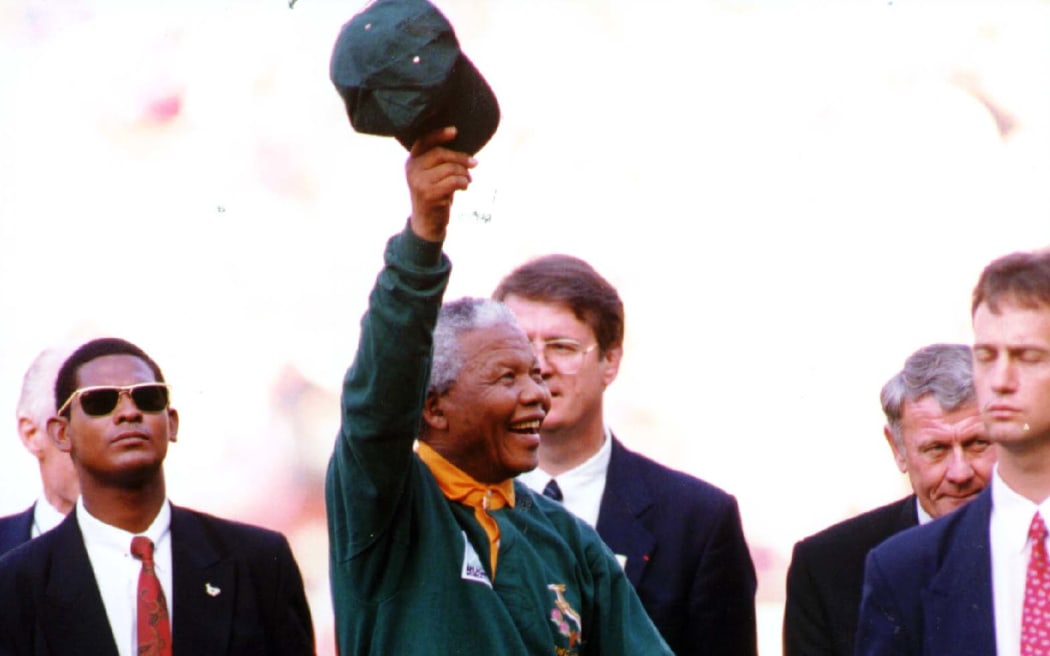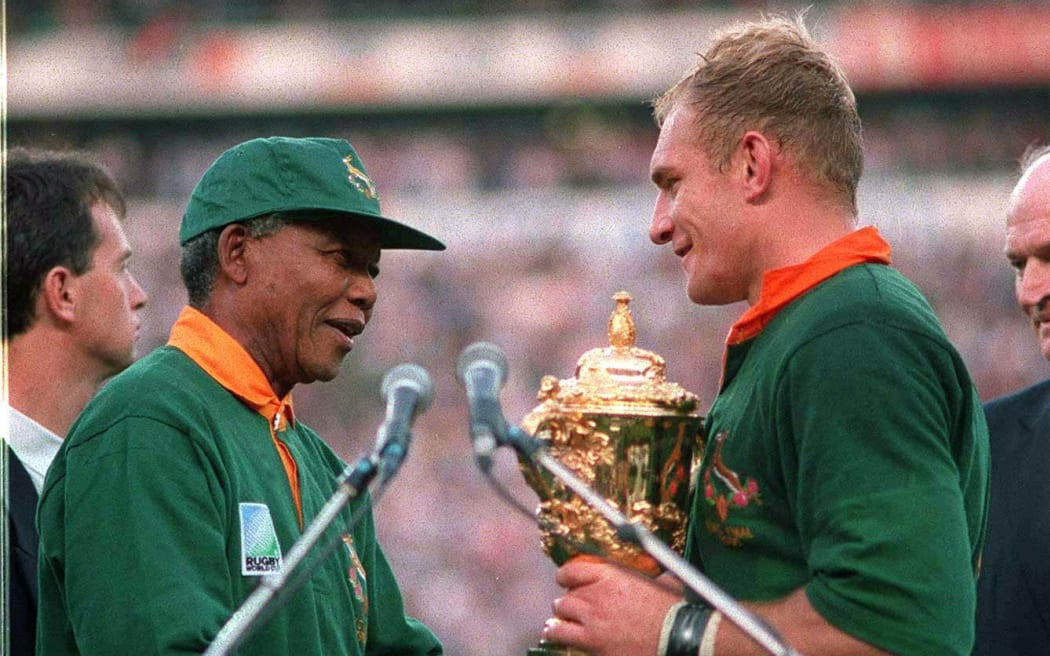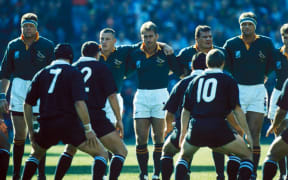By David Cohen

Nelson Mandela in 1995. Photo: Tertius Pickard / Photosport.co.nz
Opinion - Many Kiwis will be looking forward to the Rugby World Cup final between the All Blacks and the Springboks this weekend, but for this New Zealander, the big game is also about looking back to where I was four years ago when the two teams last clashed in the same tournament.
I am not a great rugby fan. But I am greatly interested in South Africa, where several of my relatives still live, and which also has long fascinated me in terms of how it has culturally reconciled in the aftermath of the dreadful apartheid era.
Unbeknownst to me until the day of the RWC in 2019, however, was the strikingly positive role rugby has played in this process.
So, there I was on the same Saturday afternoon as the ruck-and-roll action between South Africa and New Zealand, watching on with a bunch of locals at a Johannesburg pub called the Bannister Hotel.
Inside, the air inside was thick with jollity as the crowd variously cheered or groaned the opening moments of play. The bartender grinned, the glasses clinked and the skyscrapers outside seemed to bump and grind under the hazy South African sky.
Most striking of all, though, was the fact that virtually everyone milling around the bar was black. Such a scene would have been politically or culturally impossible to imagine before 1994.
For one thing, under the old Group Areas Act, black citizens were only allowed into the commercial capital on weekdays, returning to the townships of nearby Soweto in the evenings and weekends.
More to the point, though, rugby always used to be the quintessential white South African sport, as much so apartheid was once the signature political style.
For New Zealand, both aspects of the subject were underscored in 1960 when Māori players were deliberately not selected to tour the segregated country.
As the prime minister of the time Walter Nash put it, anything else would have been "an act of the greatest folly and cruelty to the Māori race". Ten years on, Māori were allowed to tour only as "honorary whites".
Human beings may have first lived in what we now call South Africa some 100,000 years ago, but political civilisation only fully arrived in 1994, when the country first started on the difficult road to banish such memories with its first-ever all-race election.
A year later in 1995, after South Africa defeated New Zealand in the RWC final, the newly elected Nelson Mandela jogged out on to Ellis Park decked out in a Springboks shirt and cap and took a bow to thunderous applause and the mostly white stadium crowd's chants of "Nelson!"
Mandela, wearing the number six jersey of Francois Pienaar, handed over the trophy to the captain of the victorious team.

Nelson Mandela and Francois Pienaar Photo: Offside / Photosport.co.nz
The gesture marked the crowning moment of the liberated nation's first major sporting event. But it also offered a new cultural cue for the republic's black citizens who today constitute roughly 80 percent of the country's 58 million inhabitants. A new love affair was born.
That romance remains important for other reasons - not least the republic's host of social problems yet unresolved, some of which I found myself thinking about that same afternoon as I was driven out to visit Soweto, where the sense of challenge still hangs in the air as palpable as the reddish haze from the nearby mines.
Violent crime in South Africa is five times the world average, and homicide runs at more than 20 times the New Zealand average.
Economic growth remains sluggish at best and rather worse than that for most blacks. Despite enjoying some improvements over the past quarter-century, they are still 10 times as likely as their white counterparts to live in absolute poverty, not least because whites still control virtually all the land. And political corruption remains a problem.
On the radiant day of the last Rugby World Cup final between the All Blacks and the Springboks though, few of the locals in this part of South Africa were particularly keen to talk about any of this gloomy stuff.
Even the one-time ANC stalwarts I met appeared distracted by the rugby. Rather, upon catching my accent - and with undisguised pleasure - they wanted to ask about just concluded game.
And really, who could begrudge them?
Rugby has "the power to inspire," Mandela famously said. "It has the power to unite people in a way that little else does. It speaks to youth in a language they understand. Sport can create hope where there was only despair." As it surely will again this weekend.
- David Cohen is a Wellington journalist.




